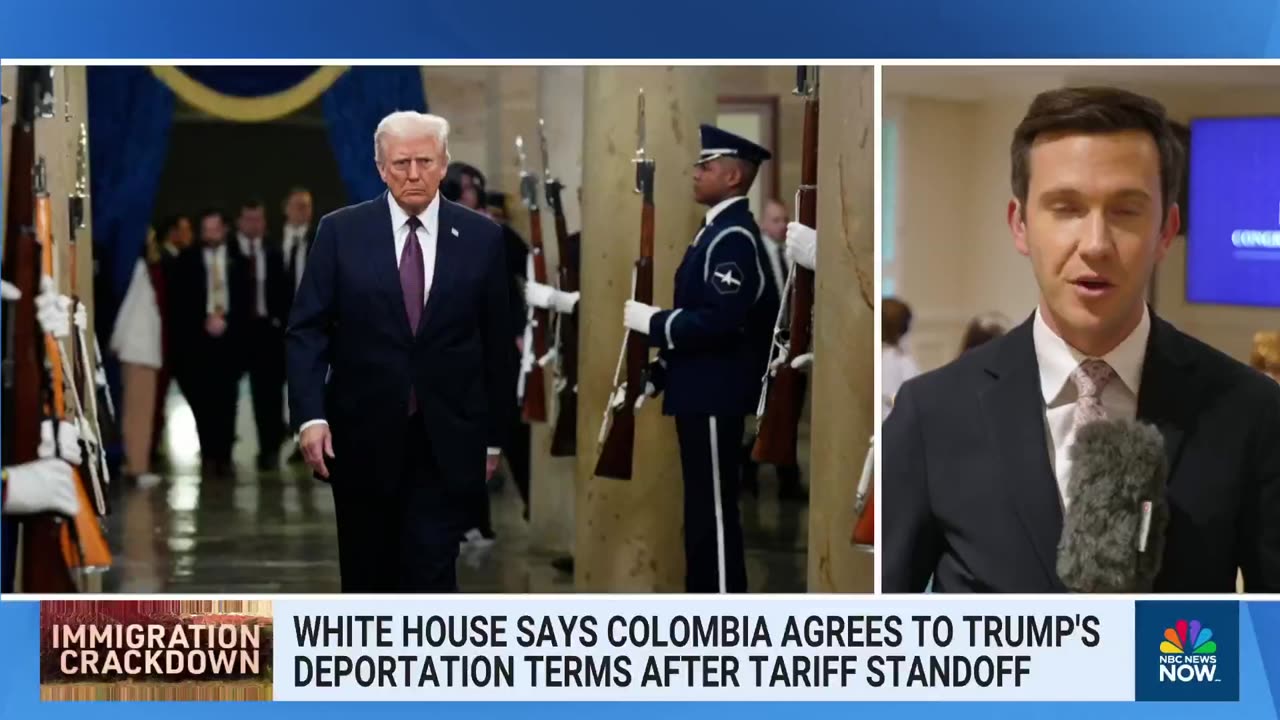Premium Only Content

Trump administration’s immigration crackdown is a ‘painstaking process’. BREAKING NEWS!!!
At least eight large public school districts across the United States have vowed in recent days to try to protect undocumented immigrant students and their families from President Donald Trump's mass deportation push.
The Trump administration has removed restrictions that prevented Immigration and Customs Enforcement from conducting raids at so-called sensitive locations, including schools (as well as houses of worship and hospitals).
All children in the United States, according to the Education Department, are entitled to a public education, regardless of their “immigration status,” allowing public school districts to largely avoid asking about or keeping records of their pupils’ standing with immigration laws.
But Trump’s latest actions to roll back sensitive locations has led to increased fears among teachers and families, whose school districts are now trying to somehow soften the blows that could come from the changes in policy.
That has been the case especially in big, blue-leaning cities with large populations of undocumented immigrants that already have sanctuary policies in effect — laws that seek to prevent or limit local officials from cooperating with federal immigration authorities as part of broader efforts to make undocumented immigrants feel safe.
A number of large public school districts in those cities have pledged to complicate the efforts by either muddling cooperation with or refusing to report information to federal immigration authorities and by making it harder for authorities to enter school grounds.
On the more forceful end are Chicago and Denver, whose large public school districts have issued guidance in recent weeks that urges officials to prevent immigration officials from entering school grounds or to set high bars for entry.
In a statement last week, Chicago Public Schools said that under the city’s sanctuary city laws — known as its Welcoming City Ordinance — “ICE agents are not permitted access to CPS facilities unless they provide their credentials, the reason they are requesting access, and a criminal judicial warrant signed by a federal judge.”
“CPS will not admit ICE agents based upon an administrative warrant, an ICE detainer, or other document issued by an agency enforcing civil immigration law,” the statement said.
Chicago Public Schools added in the statement that “while the District understands there is an executive order to rescind language about ‘sensitive locations,’ including schools,” district officials would refuse to “share private” information with ICE.
Denver Public Schools Superintendent Alex Marrero issued specific guidance this month that advised school officials to refuse entry to government officials who arrive at school buildings who do not have “business” or an “appointment” at the school.
“If a government official arrives at your school requesting information or entry and they are not an individual who has an appointment or business with anyone at the school, do not allow entry,” Marrero’s guidance said.
Officials are directed to then place the school on a secure lockdown procedure and communicate with the government officials over the intercom. The guidance said that school staff members, in situations when the government officials have already entered the building, must make sure they stay in the front office and then must place the school on lockdown.
School officials are directed to ask for a warrant or a court order. Whether one is provided or not, the government agents are to be directed to the district’s lawyers, according to the guidance.
The guidance, however, also directs school officials to “not physically impede, interfere with or obstruct a government official in performing their duties.”
While the guidance was issued before Trump rolled back sensitive location procedures, Marrero said in a second statement Friday that "the guidance was developed with" that move "in mind."
Denver Public Schools spokesperson Scott Pribble said in an interview Monday that the posture with ICE agents, however, was “really no different than what we do with anybody who shows up at a school door — we make sure that they have an appointment or they have school business, and if they don’t, we keep them outside.”
“We’re doing the same thing with any government official that shows up,” Pribble said.
-
 55:05
55:05
The Dan Bongino Show
5 hours agoAmerica Is Back In The World Stage, And We Love To See It (Ep. 2433) - 02/28/2025
670K1.25K -
 49:29
49:29
The Rubin Report
4 hours agoDetails About Joy Reid’s Weeping Farewell No One Noticed with Co-Host Megyn Kelly
62.2K56 -
 15:36
15:36
Tactical Advisor
3 hours agoMUST HAVE AR15 Upgrades for Under $100
21.1K2 -
 2:16:59
2:16:59
Benny Johnson
4 hours ago🚨Epstein Files COVERUP EXPOSED: FBI Sabotaging Trump, DELETING Evidence?! | Tapes 'MISSING'?!
113K207 -
 59:29
59:29
Steven Crowder
6 hours agoCrafting Crowder's Comedy Gold | Behind the Scenes
235K102 -
 2:06:44
2:06:44
Tim Pool
5 hours agoTHE END OF THE WEST, Will We Survive Without Christianity? | The Culture War with Tim Pool
116K77 -
 2:01:13
2:01:13
LFA TV
18 hours agoBODYCAM FOOTAGE OF TRAFFIC STOP! | LIVE FROM AMERICA 2.28.25 11AM
63.1K26 -
 1:23:10
1:23:10
The Big Mig™
6 hours agoGlobal Finance Forum From Bullion To Borders We Cover It All
30.7K3 -
 31:13
31:13
Tudor Dixon
4 hours agoThe Last Supper with Chris Tomlin | The Tudor Dixon Podcast
30.2K -
 48:58
48:58
BonginoReport
7 hours agoFake Epstein Files Fallout + Will Cain on the Government’s Internal Civil War (Ep.150) - 02/28/2025
139K282